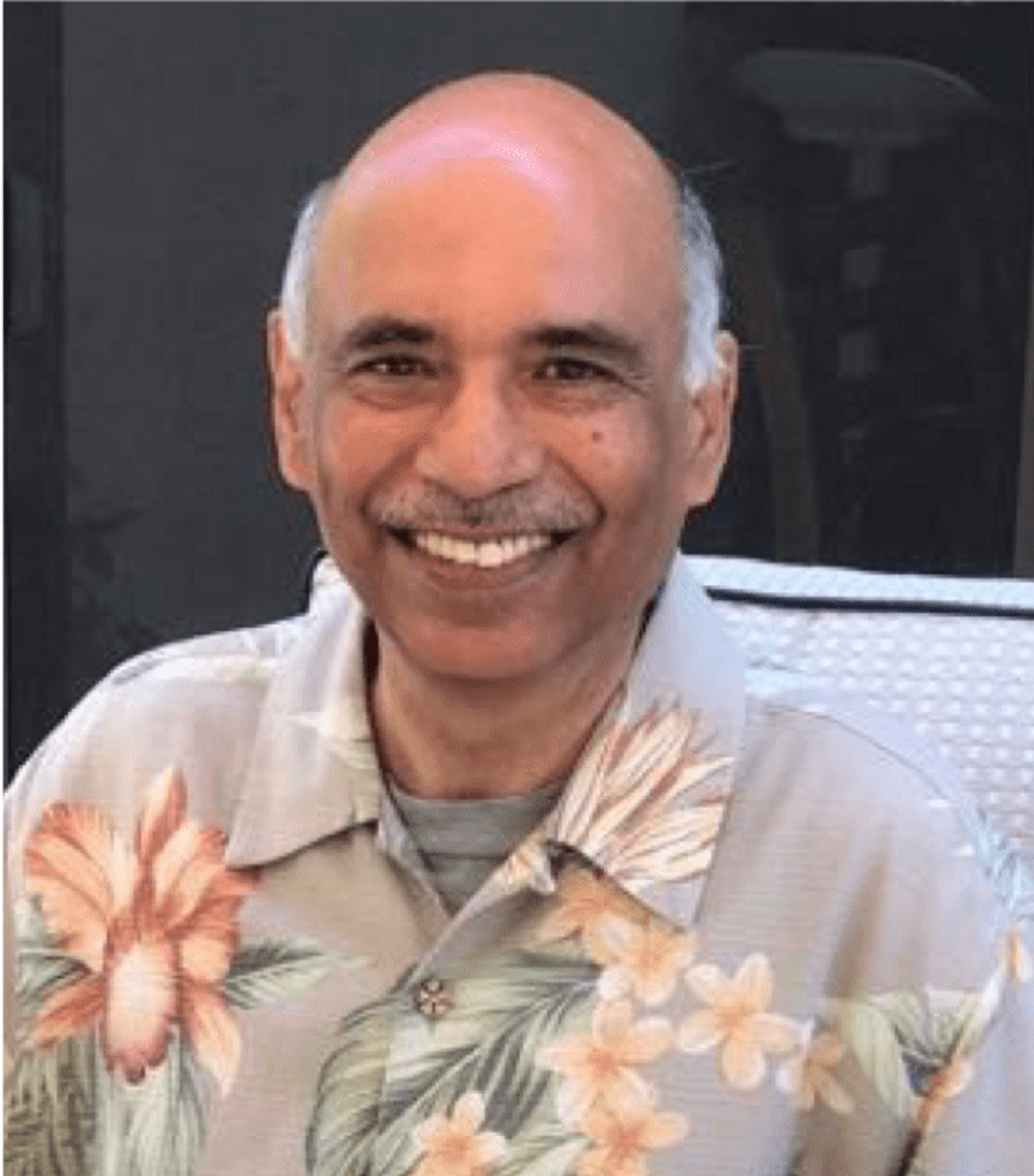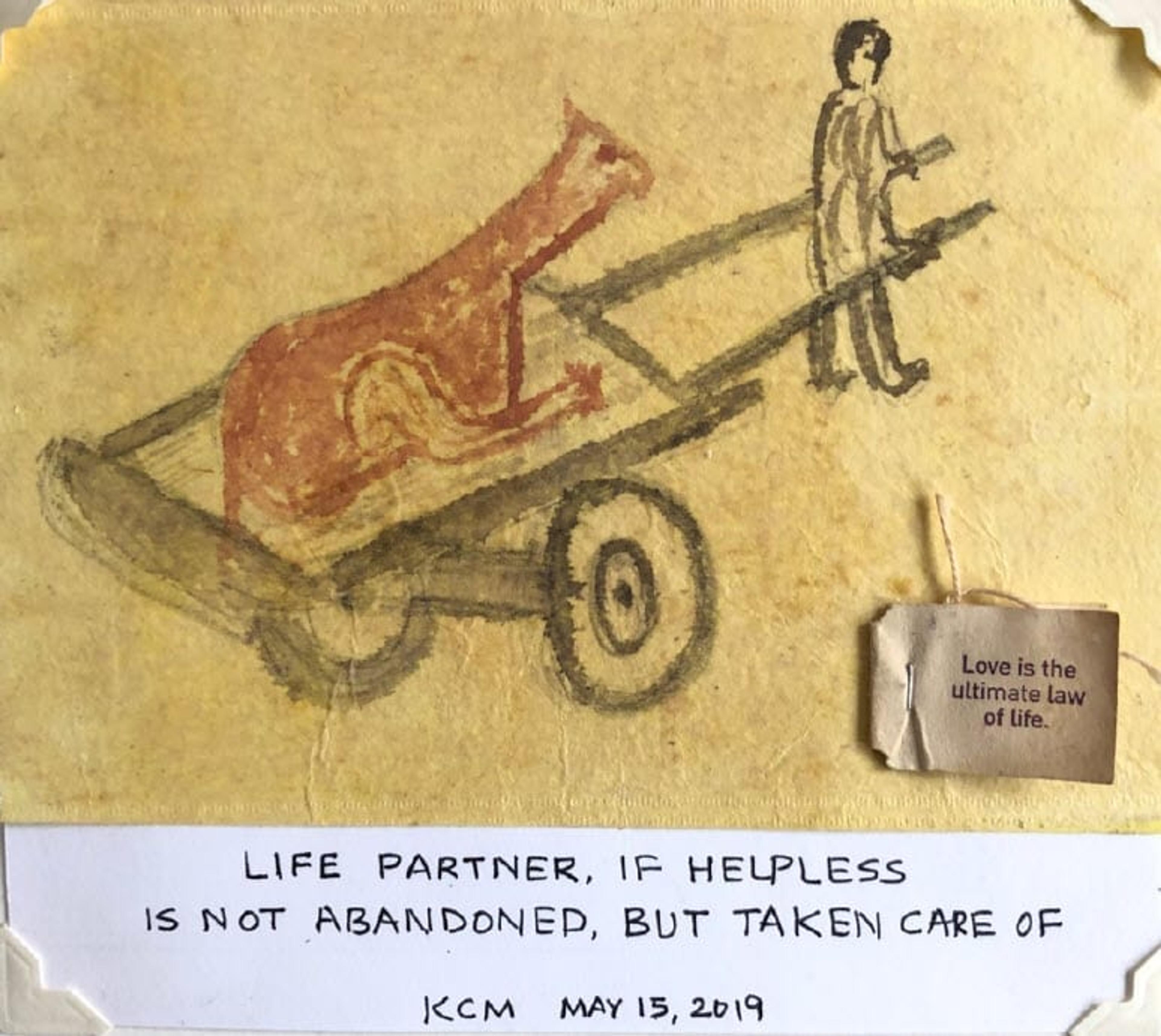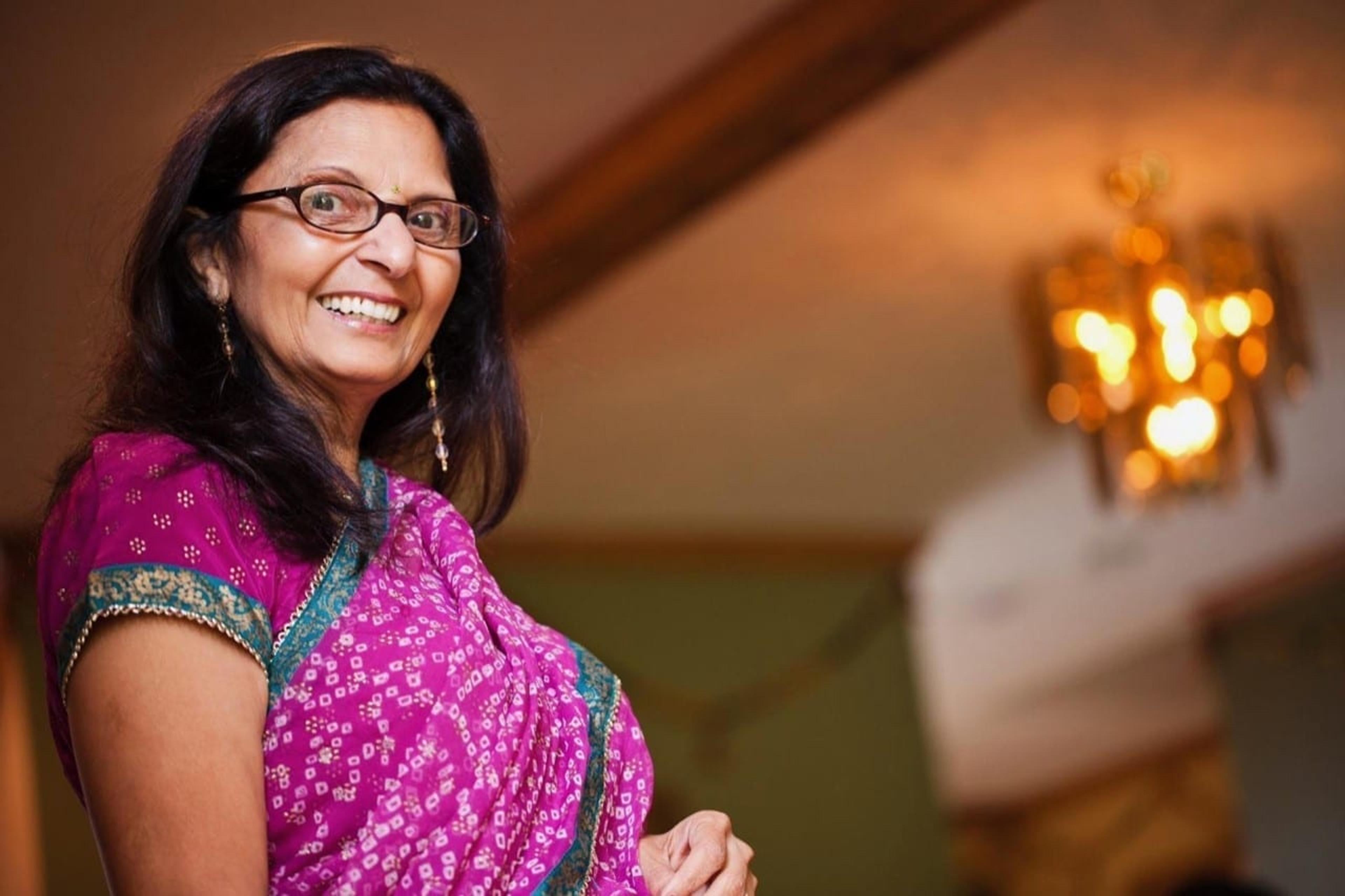Coping as Sumi’s Caregiver

Julie Bitely
| 3 min read

Editor’s note: This is the last post in a three-part blog series about KC Mehta’s experience caring for his wife, Sumi, who was diagnosed with Alzheimer’s disease at 59. Read the first post, “Sumi’s Smile: A Caregiving Love Story”, here, and the second, “Sumi 2.0: Becoming Sumi’s Care Partner”, here.
…

KC in a recent photo. In the image above, KC and Sumi enjoy a moment as newlyweds.
At this point, Sumi is physically well. She walks most days and KC makes sure she’s eating and well-nourished. She can’t verbally express her needs or discomfort or pain and KC said it’s hard sometimes to know exactly what she’s going through. Emotionally and mentally she isn’t the woman he married but he still catches glimpses of her through an enduring gentle and loving demeanor.
KC, like many caregivers, faces isolation and loneliness because of the all-consuming nature of the work he does to keep Sumi cared for.
“With a few exceptions, isolation from close friends and relatives is one casualty of this disease,” he said.
To cope, he focuses on the present, making sure to carve out time for his physical, mental and emotional wellbeing. He channels his feelings through writing on WhatsApp – “My Journey with Sumi” is an online journal he shares with close family and friends to keep them updated. It helps him process his emotions and offers a glimpse into their life together.
He makes time for exercise and meditation, enjoys listening to music with Sumi and continues his love of gardening and cooking. Hiring a part-time, in-home caregiver has allowed him to take part in art classes and support groups geared toward caregivers, which have been a powerful outlet, connecting him to others on the same caregiving path.

A piece of KC’s artwork made with gouache paint on an unfolded teabag. He enjoys art classes at Birmingham Bloomfield Art Center. The caption on this piece reads, “Life partner, if helpless, is not abandoned but taken care of.”
He’s happy that Sumi is still able to stay home and that he can provide one-on-one, person-centered care that makes her comfortable. He feels the familiar sights, smells and comforts of home, including the couple’s shared Indian culture, language and food, have made life better for Sumi, acknowledging that isn’t possible for everyone in the same situation.
“My goal is to keep her at home as long as I can,” KC said.

Sumi before her diagnosis.
The biggest takeaway he shares with others embarking on caregiving for a loved one is to be intentional in their actions. You can’t change the diagnosis or the disease, but you do have control over your response to it. Looking for the positive and connecting with available supports is important to sustaining your own mental health. Remembering your loved one as they were can also provide some comfort and space for understanding.
“When (Sumi) is extremely difficult it is not her, but the disease,” KC said. “And when she smiles, it is her true self and not the disease.”
Last year, KC was one of six family caregivers honored by Area Agency on Aging 1-B, based on an essay he submitted to the organization’s “Caregiver Champions Contest”. If you’re a caregiver in need of advice or support, your local Area Agency on Aging can be a great resource for classes, support groups and even advice on finding respite care.
Want more content like this? Subscribe to our Midlife Map series here:
Please leave this field empty Interested in more of this content? We'll send related updates right to your inbox. Email Address *
Enjoy your new subscription!
Related content:
All images courtesy of KC Mehta





